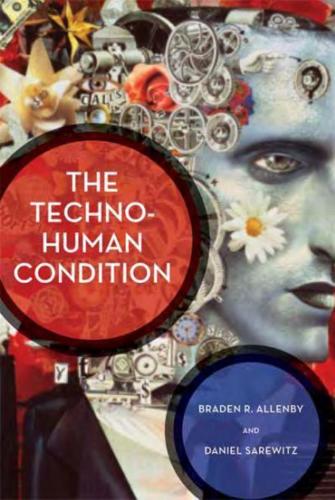
The Techno-Human Condition
by
Braden R. Allenby
and
Daniel R. Sarewitz
Published 15 Feb 2011
Instead, we have a state of radical and irreducible contingency that requires-if it is to be comprehended sufficiently to allow effective engagement with its implications-simultaneous contemplation of many different and perhaps conflicting worldviews. Thus does the anthropogenic world resulting from the Enlightenment, and its industrial and scientific revolutions, seem to create a strong and necessary commitment to the development of internally consistent and coherent worldviews and ideologies, even as it demands the philosophic flexibility necessary to respond to complex systems unrolling in unpredictable and Complexity, Coherence, Contingency 119 uncertain majesty. In short, in a complex world, the intelligible and the rational may often conflict; Level III rationality-a capacity to link cognition to desired outcomes in the world via action-can only emerge from a commitment to confronting and working with (we would say "managing," but it isn't clear that we can actually do that in any strong sense with such complex and powerful systems) that which is incomprehensible.
…
So long as the Greenland weather behaved like European weather, the Christian and European cultural worldview served the settlers well: they were in a Level I and Level II world. But when climate changed, they were thrown into a Level III situation-highly unpredictable and contingent-and failed to adjust. The intellectual confusion that occurs when one applies Level I and Level II coherent worldviews to a Level III condition is quite evident today in the climate-change arena and in the infatuation with "carbon footprints."lo For example, a professor writing in the Medical Journal of Australia recently called on the Australian government to impose a carbon charge of $5,000 on every birth, to charge annual carbon fees of $800 per child, and to provide a carbon credit for sterilization. 11 Articles in New Scientist have suggested that obesity is mostly a problem because of the additional carbon load it imposes on the environment,12 that a major social cost of divorce is the additional carbon burden resulting from splitting up families, and that pets should be should be eliminated because of their carbon footprints ("Man's best friend, it turns out, is the planet's enemy").13 A recent study from the Swedish Ministry of Sustainable Development argues that males have a disproportionately larger impact on global warming. 14 ("Women cause considerably fewer carbon dioxide emissions than men, and thus considerably less climate change.")
…
Yet, as we have emphasized, the cognitive networks we inhabit, and the systems we are seeking to understand, are not out there waiting to be revealed in ever more detail; they are created by the very queries we pose to the system, and the very cognitive network within which we gather data and process knowledge. Any framework or model that can be understood, and that is based on a coherent worldview, is by definition at best only a partial truth. Once could almost say "If you can understand it, it isn't True; and if it is True, you can't understand it." Meaning, truth, and values, therefore, do not arise from first principles; they are functions of the state of the cognitive network-of our ordering of information and knowledge-and thus are contingent and continually regenerated in a reflexive dialog between cognitive systems posing queries to, and thus generating configurations of, external complex systems.
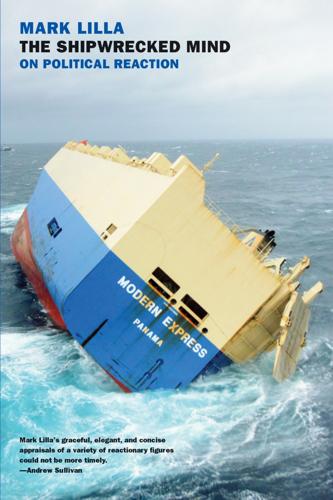
The Shipwrecked Mind: On Political Reaction
by
Mark Lilla
Published 19 Oct 2015
Though it lacks theological trappings, it actually owes a great deal to Jesus, who was a libertarian avant la lettre prophesying the final triumph of the individual soul and its inner experience over the domination of traditional communal bonds and illegitimate religious authority. The new orthodoxy brought a perfectly coherent worldview that makes sense of the human condition (we are bodies that are born and die alone), of what lies beyond (nothing), and of what we need to be happy (carpe diem). And it also, not insignificantly, keeps the peace, since war is bad for business. The new catechism has not reached everyone, and resistance in certain regions is strong and sometimes armed.

When Breath Becomes Air
by
Paul Kalanithi
and
Abraham Verghese
Published 12 Jan 2016
One of my junior residents came up to me and said, “I just heard from the bosses—if they hire you, you’re going to be my faculty mentor!” “Shhhh,” I said. “Don’t jinx it.” It felt to me as if the individual strands of biology, morality, life, and death were finally beginning to weave themselves into, if not a perfect moral system, a coherent worldview and a sense of my place in it. Doctors in highly charged fields met patients at inflected moments, the most authentic moments, where life and identity were under threat; their duty included learning what made that particular patient’s life worth living, and planning to save those things if possible—or to allow the peace of death if not.
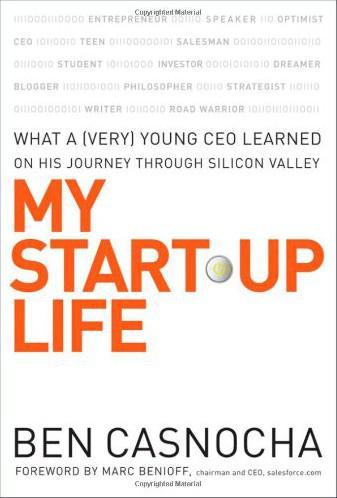
My Start-Up Life: What A
by
Ben Casnocha
and
Marc Benioff
Published 7 May 2007
They may or may not be relevant to our main work. They materialize in various stages of development. I try to capture, record, review, refine, and publish (on my blog) as many of these fringe thoughts as I can. Besides making you a better conversationalist, organizing your fringe thoughts is one way toward a more intellectually coherent worldview. Among the various repositories and lists for such thoughts should be “New Business Ideas.” Each time you see something that could be done better, write it down on this list. Don’t be careful. Recording fringe thoughts is an exercise in creativity, and research shows that the minute we try to add a filter to our thinking—for coherence, approval, or completeness— is the minute the ideas tap goes cold.
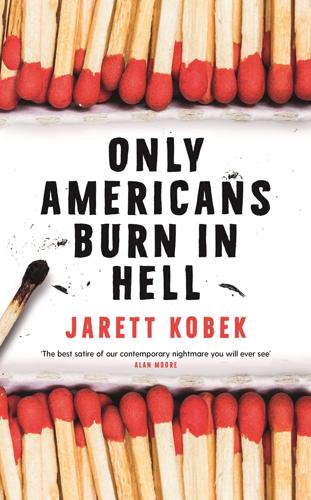
Only Americans Burn in Hell
by
Jarett Kobek
Published 10 Apr 2019
He suggests there’s a cover-up of Hillary Clinton’s lovers, with the implication being that there’s scores of women who’ve had the former Secretary of State’s tongue in their birth canals. He says that Clinton is old and sick and that there’s a cover-up about her impending death. He claims there are 80 million illegal immigrants living in the US. Things are different than back in 1997 AD. The coherent worldview has changed and encompassed some very dubious thoughts. There’s an edge in this interview that’s nowhere to be seen in the early days. This is a person who knows that he’ll never be understood. While Michael Kinsley sneered at Drudge for an hour in 1997 AD, he was wrapped in a delusion about the nature of his job.
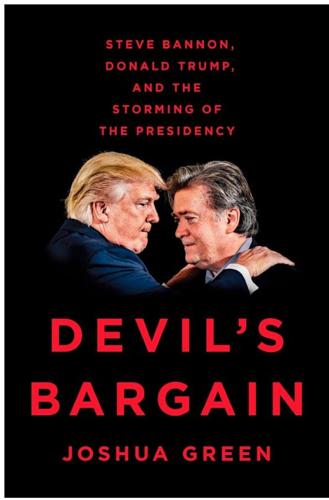
Devil's Bargain: Steve Bannon, Donald Trump, and the Storming of the Presidency
by
Joshua Green
Published 17 Jul 2017
He goes, ‘That’s amazing, brother.’” Although neither of them could have had any inkling of where they would end up, Bannon would provide Trump with two great services in the years ahead—services without which Trump probably wouldn’t be president. First, he supplied Trump with a fully formed, internally coherent worldview that accommodated Trump’s own feelings about trade and foreign threats, what Trump eventually dubbed “America first” nationalism. One aspect in particular that preoccupied Bannon—the menace of illegal immigration—was something Trump would use to galvanize his supporters from the moment he descended the Trump Tower escalator on June 16, 2015, to declare his candidacy.
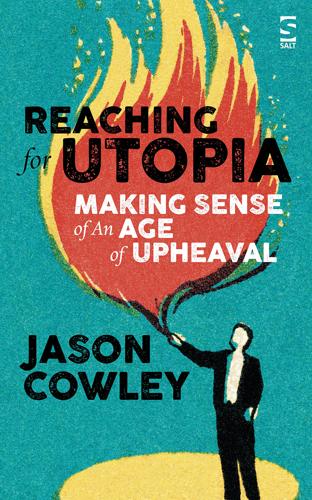
Reaching for Utopia: Making Sense of an Age of Upheaval
by
Jason Cowley
Published 15 Nov 2018
The vote for Brexit has unlocked possibilities for her and created an opportunity, she believes, for a new political economy. It was Brexit that opened the door of 10 Downing Street to her, not least because the alternatives – Boris Johnson, Andrea Leadsom, Michael Gove – were so wayward and divisive. Unlike Johnson, who seems to have no consistent or coherent world-view, May believes in an interventionist, even moral, state. ‘The key thing about her is her belief in the efficacy and, so to speak, compensatory function of the state, the important positive functions – you might even say the moral functions of the state,’ said the philosopher John Gray. * * * When I visited Theresa May one morning in her office in Downing Street, we discussed her trip to Davos, Switzerland, in January 2017.
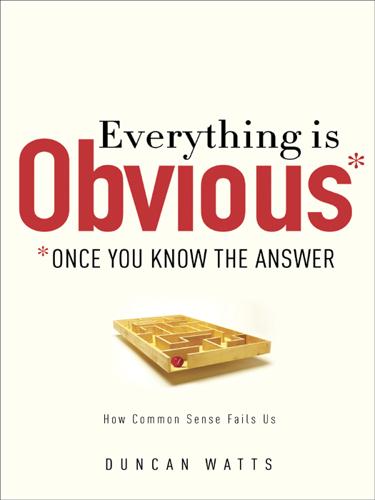
Everything Is Obvious: *Once You Know the Answer
by
Duncan J. Watts
Published 28 Mar 2011
So if something that seemed so obvious turned out to be wrong, what else that we believe to be self-evident now will seem wrong to us in the future? Once we start to examine our own beliefs, in fact, it becomes increasingly unclear even how the various beliefs we espouse at any given time fit together. Most people, for example, consider their own views about politics to be derived from a single coherent worldview: “I’m a moderate liberal” or “I’m a diehard conservative,” and so on. If that were true, however, then one would expect that people who identify as liberals would tend to espouse the “liberal” perspective on most matters, and that conservatives would espouse a consistently different view. Yet research finds that regardless of whether people identify themselves as liberals or conservatives, what they think about any one issue, like, say, abortion, has relatively little relation to what they believe about other issues, such as the death penalty or illegal immigration.
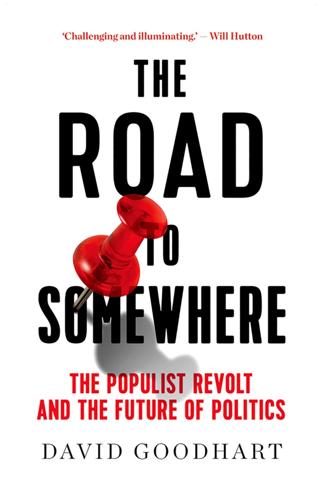
The Road to Somewhere: The Populist Revolt and the Future of Politics
by
David Goodhart
Published 7 Jan 2017
They are usually strongly concerned with social justice and unfairness, and also suspicious of appeals to religion, tradition or human nature to justify any departure from equal treatment—differences between men and women, for example, are regarded as almost entirely cultural rather than biological. This is also what some people call the secular liberal baby boomer worldview in particularly pure form—and it is in many ways an attractive and coherent worldview. It is also, for historical reasons to do with empire and post-imperial guilt, unusually ingrained in the British cultural and political elite—the default position in much of higher education and significant parts of the media. But it is very unlikely ever to become a majority worldview. Most traditional societies are ‘sociocentric’, meaning they place the needs of groups and institutions first.
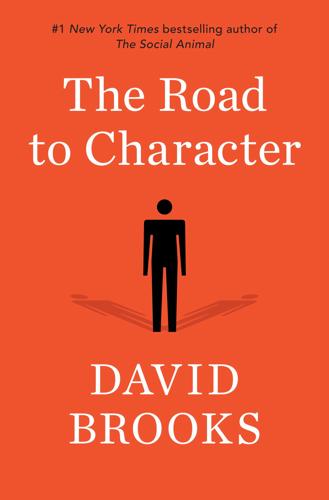
The Road to Character
by
David Brooks
Published 13 Apr 2015
Boswell was an epicurean and an acolyte and knew Johnson only in his old age. Boswell’s Johnson is anything but wretched. He is joyful, witty, complete, and compelling. In Boswell’s account we find a man who has achieved some integration. But this was a construction. Through writing and mental effort he constructed a coherent worldview. He brought himself to some coherence without simplification. He became trustworthy and dependable. Johnson also used his writing to try to serve and elevate his readers. “It is always a writer’s duty to make the world better,” Johnson once wrote, and by maturity he had found a way. Humanism How did he do this?
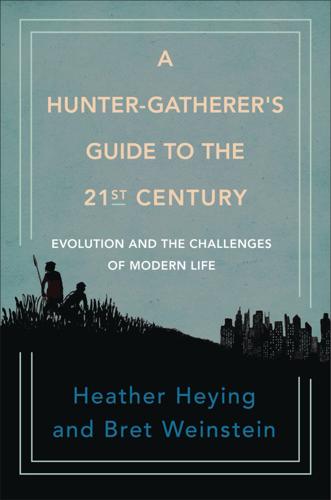
A Hunter-Gatherer's Guide to the 21st Century: Evolution and the Challenges of Modern Life
by
Heather Heying
and
Bret Weinstein
Published 14 Sep 2021
Observing this does not mean that men don’t nurture, or that women don’t explore, but these population-level differences have evolved because of the underlying differences between the sexes. Pretending otherwise puts us all at risk—ask people to believe things that are patently untrue and they will be ever less likely to form a coherent worldview, one based in observation and reality, rather than fantasy. Men will never ovulate, gestate, lactate, menstruate, or go through menopause. Women who identify as men might, but that is different. Sexual Selection in Humans The moose’s antlers, and the fights that they have, and the fact of female choice—these are all sexually selected characters.
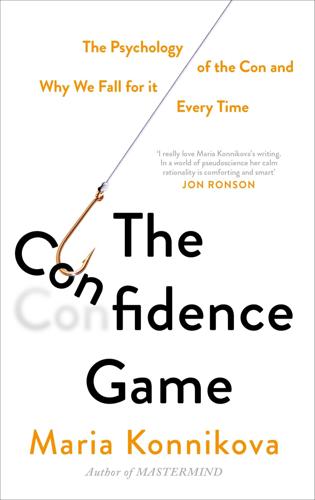
The Confidence Game: The Psychology of the Con and Why We Fall for It Every Time
by
Maria Konnikova
Published 28 Jan 2016
And the reason it happens—and often happens to the most intelligent of people (note, Sullivan would say, the typical cult recruit: young, smart, sophisticated, savvy)—is that human nature is wired toward creating meaning out of meaninglessness, embracing belief over doubt. “There are certain essential things we all have in common,” Sullivan said. “There’s a deep desire for faith, there’s a deep desire to feel there’s someone up there who really cares about what’s going on and intervenes in our life. There’s a desire to have a coherent worldview: there’s a rhyme and reason for everything we do, and all the terrible things that happen to people—people die, children get leukemia—there’s some reason for it. And here’s this guru who says, ‘I know exactly the reason.’” It’s the reason behind all cons, from the smallest to these, the deepest.
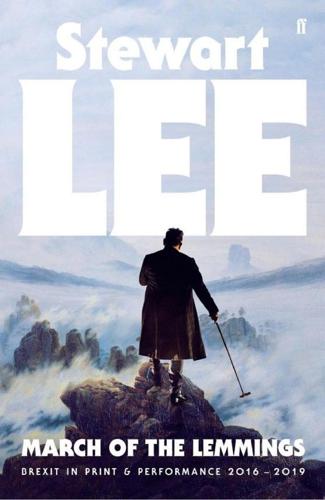
March of the Lemmings: Brexit in Print and Performance 2016–2019
by
Stewart Lee
Published 2 Sep 2019
Presumably you remember it from the playground, where Gove-like figures peeped over bullies’ shoulders, urging them to violence from a position of cowardly safety, the Richard Hammond/Jeremy Clarkson dynamic, an eternal archetype, replayed in Trump’s golden office, framed Playboy covers reflected in the smeared lenses of Gove’s steamed-up spectacles. Is it just me or is it hot in here? Gove may be a slave but he is not an idiot. He knows there is no point setting any store by anything Trump says. Trump’s comments do not add up to any coherent worldview. Each emerges in the moment, suitable for that second, and that second alone. In his Gove interview Trump said he hoped to scale down his nuclear arsenal. But as recently as 22 December, in his famous ‘Let It Be an Arms Race’ series of 140-character treatises, Trump declared: ‘The United States must greatly strengthen and expand its nuclear capability.’
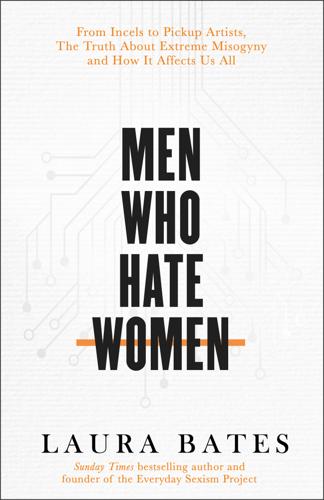
Men Who Hate Women: From Incels to Pickup Artists, the Truth About Extreme Misogyny and How It Affects Us All
by
Laura Bates
Published 2 Sep 2020
I became used to seeing women referred to as foids, barely registered the incitements to initiate misogynistic massacres, skimmed over posts about rape, because they were just so common. Finally, one day, I read a post about giving a foid the violence she deserved, in order to avoid being cucked, and I realised that I understood every word. In short, I got used to it. Or, rather, Alex did. The sense of a coherent worldview and a shared language may be deeply appealing to those who hold extreme prejudices but don’t feel able to express them offline in face-to-face conversations, warns Dr Sugiura, who has studied incel and other manosphere communities. These forms of hatred, she notes, have long pre-dated the internet, but: Online communities and virtual platforms provide the means for these ideas to take shape, take hold and spread.
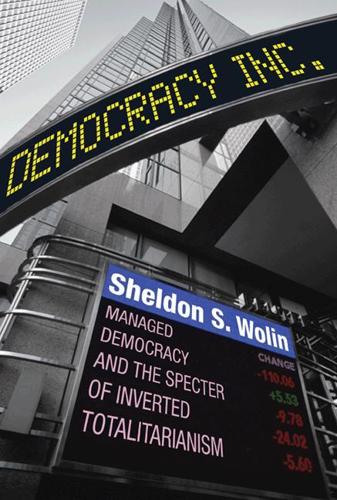
Democracy Incorporated
by
Sheldon S. Wolin
Published 7 Apr 2008
In the process it demonstrates the superior cost-effectiveness of inverted totalitarianism over the crude classic versions. This underscores the contribution of the “public ideology” being promoted by elected Republicans and pseudoconservative ideologues. Although ideologies profess consistency and boast of their coherent “worldview,” there is typically a suppressed, or downplayed subtext in the message. The suppressed component of the prevailing ideology is the political status of corporate power. While the public ideology celebrates economics in the form of “entrepreneurship,” “small start-ups,” and “free enterprise,” it ignores the political significance and power of the corporation.
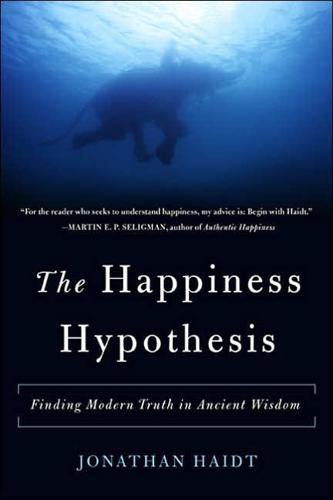
The Happiness Hypothesis: Finding Modern Truth in Ancient Wisdom
by
Jonathan Haidt
Published 26 Dec 2005
Their world was unaligned, and they could not b e c o m e vitally engaged in the larger but ignoble mission of gaining market share at any cost. . . C R O S S - L E V E L C O H E R E N C E T h e word "coherence" literally means holding or sticking together, but it is usually used to refer to a system, an idea, or a worldview whose parts fit together in a consistent and efficient way. Coherent things work well: A coherent worldview can explain almost anything, while an incoherent worldview is hobbled by internal contradictions. A coherent profession, such as genetics, can get on with the business of genetics, while an incoherent profession, like journalism, s p e n d s a lot of time on self-analysis and self-criticism.33 Most people know there's a problem, but they can't agree on what to do about it.
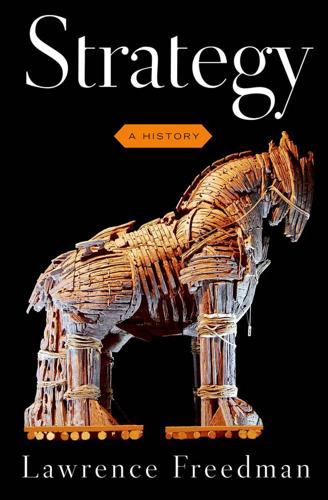
Strategy: A History
by
Lawrence Freedman
Published 31 Oct 2013
During the course of the political struggles of the 1950s and 1960s over race and war, strategies came to focus increasingly on how to create the right impression. The totalitarian ideologies of Communism and Nazism attempted to demonstrate in practice the suggestibility of the broad masses to political formulas devised by a privileged elite. They sought deliberately to insert coherent worldviews into the consciousness of whole populations and enforce their dictates, sliding over the evident anomalies and inconsistencies and gaps that developed with lived experience. Their success, moreover, owed much to the fearful consequences of any shows of dissent, doubt, or deviation from the party line.
…
Dover Area School District court case decided against intelligent design on the grounds that it was insufficiently distinctive from creationism to deserve a place on the science curriculum.19 The case demonstrates the difficulty with the “paradigm” paradigm. Neither evolution nor intelligent design referred to fully coherent world-views. Among evolutionary biologists there were substantial differences but no sense of crisis: evolution was accepted as a powerful theory that kept on pointing researchers in fruitful directions. In Kuhn’s terms, within the dominant matrix there were still a number of exemplary paradigms under challenge.

The Divided Nation: A History of Germany, 1918-1990
by
Mary Fulbrook
Published 14 Oct 1991
From the actually rather limited June Uprising of 1953 until the upheavals of 1989, there were no mass protests which might Page 267 warrant the term 'opposition'. There were individuals opposing Ulbricht's and Honecker's policies from within, although these posed little serious challenge from the late 1950s to the 1980S; there were also expressions of a range of coherent world-views which differed explicitly from official Marxist-Leninist ideology and which might be categorized as 'dissent' in one form or another. These views included the humanistic Marxism of a number of intellectuals pursuing what has been called the tradition of the 'Third Way'; the religious views of the relatively large number of practising Protestants and the smaller group of Catholics living in the GDR; and, eventually, the diffuse but unorthodox views of a growing number of peace activists, environmentalists, and adherents of an 'alternative' culture in the 1980s.
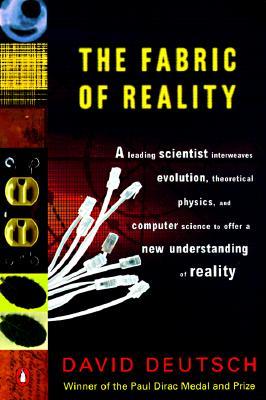
The Fabric of Reality
by
David Deutsch
Published 31 Mar 2012
We must take them seriously, not merely as pragmatic foundations for their respective fields but as explanations of the world. And I believe that we can achieve the greatest understanding if we consider them not singly but jointly, for they are inextricably related. It may seem odd that this suggestion - that we should try to form a rational and coherent world-view on the basis of our best, most fundamental theories - should be at all novel or controversial. Yet in practice it is. One reason is that each of these theories has, when it is taken seriously, very counter-intuitive implications. Consequently, all sorts of attempts have been made to avoid facing those implications, by making ad hoc modifications or reinterpretations of the theories, or by arbitrarily narrowing their domain of applicability, or simply by using them in practice but drawing no wider conclusions from them.
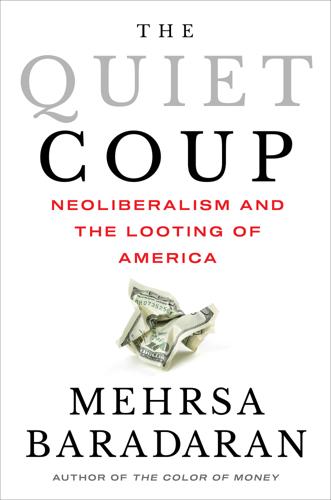
The Quiet Coup: Neoliberalism and the Looting of America
by
Mehrsa Baradaran
Published 7 May 2024
The mother who dies with her children apparently earned her fate because she is married to a government employee who enforces job directives, and whom she defends by saying, “I don’t care, it’s only the rich that they hurt. After all, I must think of my children.” Although the priests and administrators of neoliberalism spoke in terms of rational economics, the prophet was clear in her righteous judgments. She explained at length in unsolicited letters and shouting matches that her philosophy was a coherent worldview that conflicted with the moral view of Christianity. It was either Atlas Shrugged or the Bible—subscribing to both was heresy. While the priests spoke in terms of rational economics, the prophet offered righteous judgments. Rand meted out punitive justice and condemnation without subtlety. Even a conservative stalwart like Whittaker Chambers was struck by Rand’s tone of “dogmatism without appeal”; writing in 1957 in the National Review, he observed that Atlas Shrugged “supposes itself to be the bringer of final revelation” and casts dissenters as “willfully wicked.”

In Pursuit of Privilege: A History of New York City's Upper Class and the Making of a Metropolis
by
Clifton Hood
Published 1 Nov 2016
In so doing, they restored a bipolar and hierarchical opposition between the haves and have-nots that had not existed since the eighteenth-century dichotomy between polite and impolite society had eroded earlier in the nineteenth century under pressure of rapid urban growth, the expansion of the wealth and size of the upper class, and the appearance of a middle class. Together with a set of ideas about urban leadership, economic development, poverty, and immigration that had been around for several decades but that until now had never coalesced into a coherent worldview, the memory of the draft riots cemented the emergence of a moral community that was led by the upper class but encompassed the middle class and respectable workers. The upper class emerged from the Civil War with two intertwined roles: as the bulwark against the social volcano and as agents of a paternalistic society that would give the lower orders enough of the rudiments of civilization to defang them.
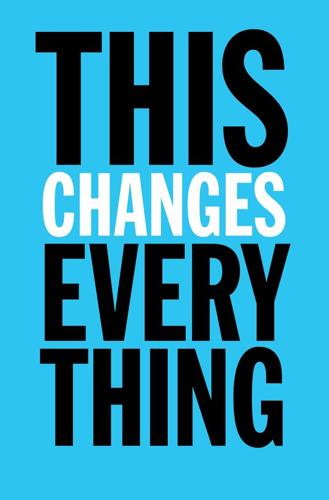
This Changes Everything: Capitalism vs. The Climate
by
Naomi Klein
Published 15 Sep 2014
Because what is overwhelming about the climate challenge is that it requires breaking so many rules at once—rules written into national laws and trade agreements, as well as powerful unwritten rules that tell us that no government can increase taxes and stay in power, or say no to major investments no matter how damaging, or plan to gradually contract those parts of our economies that endanger us all. And yet each of those rules emerged out of the same, coherent worldview. If that worldview is delegitimized, then all of the rules within it become much weaker and more vulnerable. This is another lesson from social movement history across the political spectrum: when fundamental change does come, it’s generally not in legislative dribs and drabs spread out evenly over decades.

Fall; Or, Dodge in Hell
by
Neal Stephenson
Published 3 Jun 2019
Which works, because they have an orderly sheep-based economy in which the rules of the game are clear and everyone can agree on basic ideas such as ‘If our animals eat more grass we have a better time of it.’ But those people, the people across the river, are in a very unsettled state and nothing really makes sense to them, and so trying to get them to buy into a coherent worldview of any sort is a mug’s game.” Julian translated: “Bronze Age shepherds may have been just one step above cavemen, but at least they were reality based.” “Very much so,” Enoch agreed. “And that goes on being more or less true for quite a while. Now, theater, and later movies, eventually get us into the realm of shared hallucinations.